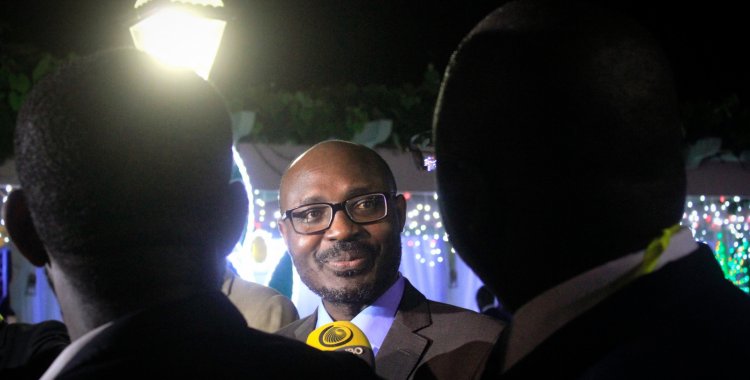In an interview with the Lusa agency, in Lisbon, the journalist also said that "nothing will be done, there will be no development, there will be no improvements in the country" without "functional institutions".
"This third way is not the creation of a new political party, it is not the creation of political leaderships, but the creation of specialized knowledge that effectively contributes to the de-partisanship of the State being a reality and people coming together around the great themes to make the country move, because at the moment we have a country paralyzed by the will of those who hold power", he considered.
For Rafael Marques, the departisanship of the State has already begun in the last general elections of 24 August, "in which many militants from the MPLA [Popular Movement for the Liberation of Angola], from the Defense and Security Forces expressed their protest vote by voting for the opposition".
This was a sign of "departisanship of the citizens' mentality", which is "the most important step towards effective departisanship of the State", he said.
The blog director Maka Angola considered that the next step is "the fight for the reinforcement of State institutions" and for that Angolan citizens must be "focused on the country's social and economic problems, on the issue of education and health".
According to the activist, it is essential for Angola to have "a stronger State, which prevents any citizen, any individual, from overruling State institutions and the will of the majority".
"The popular will, as long as it is solidary and organized, is always stronger than the will of any tyrant," he said.
Asked whether the President, João Lourenço, will take into account the popular discontent expressed in these elections and which was reflected in a better result of the National Union for the Total Independence of Angola (UNITA), Rafael Marques considered that the head of state, with the appointment of the new government, "has given indications that it will continue to govern for itself and not for the people".
"When people disapprove of the Government and the President insists on maintaining this Government, he is saying that he does not care about public opinion", he said, considering that in this case João Lourenço only has two options: "either he faces greater discontent or become more repressive, authoritarian".
Rafael Marques underlined that the President has the chance to opt for "humility in dialoguing with the citizens to find a Government that serves all Angolans and [...] that remains of the fragility of State institutions in Angola".
However, "it seems that the President has given up on Angola and the Angolans", but "Angolans cannot give up" on their country, he said, reiterating the need for a third way to "prevent a return to authoritarianism" which "appears to be draw now in Angola".
Asked if UNITA now also has an increased responsibility in view of the historic electoral result, he considered that it is still necessary to understand "what will be the opposition's agenda" for the next five years.
On the role of civil society, namely a new generation of activists, Rafael Marques said that "today there is greater freedom of expression in Angola" and "the culture of fear has been broken" because João Lourenço "focused on internal struggles within of the MPLA" to consolidate his "personal power" and that "allowed the pressure on society to be relieved and people today to express themselves".
However, he defended that organization is needed, "a civil society of social networks, of the boot below, of insults is not enough", but structured, committed and specialized in concrete themes.
And that "takes its time," he concluded.







